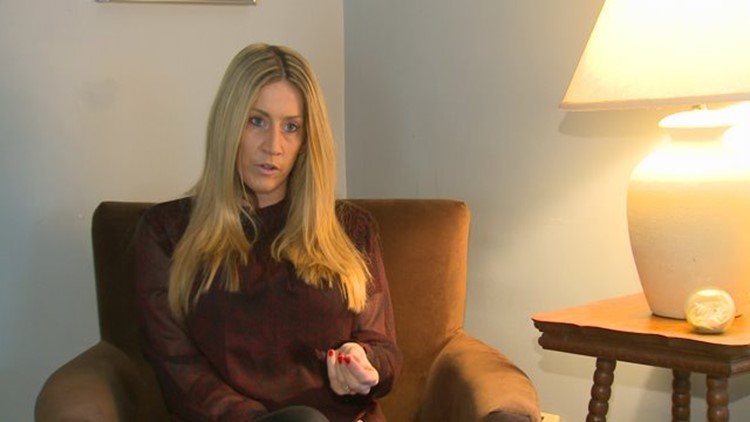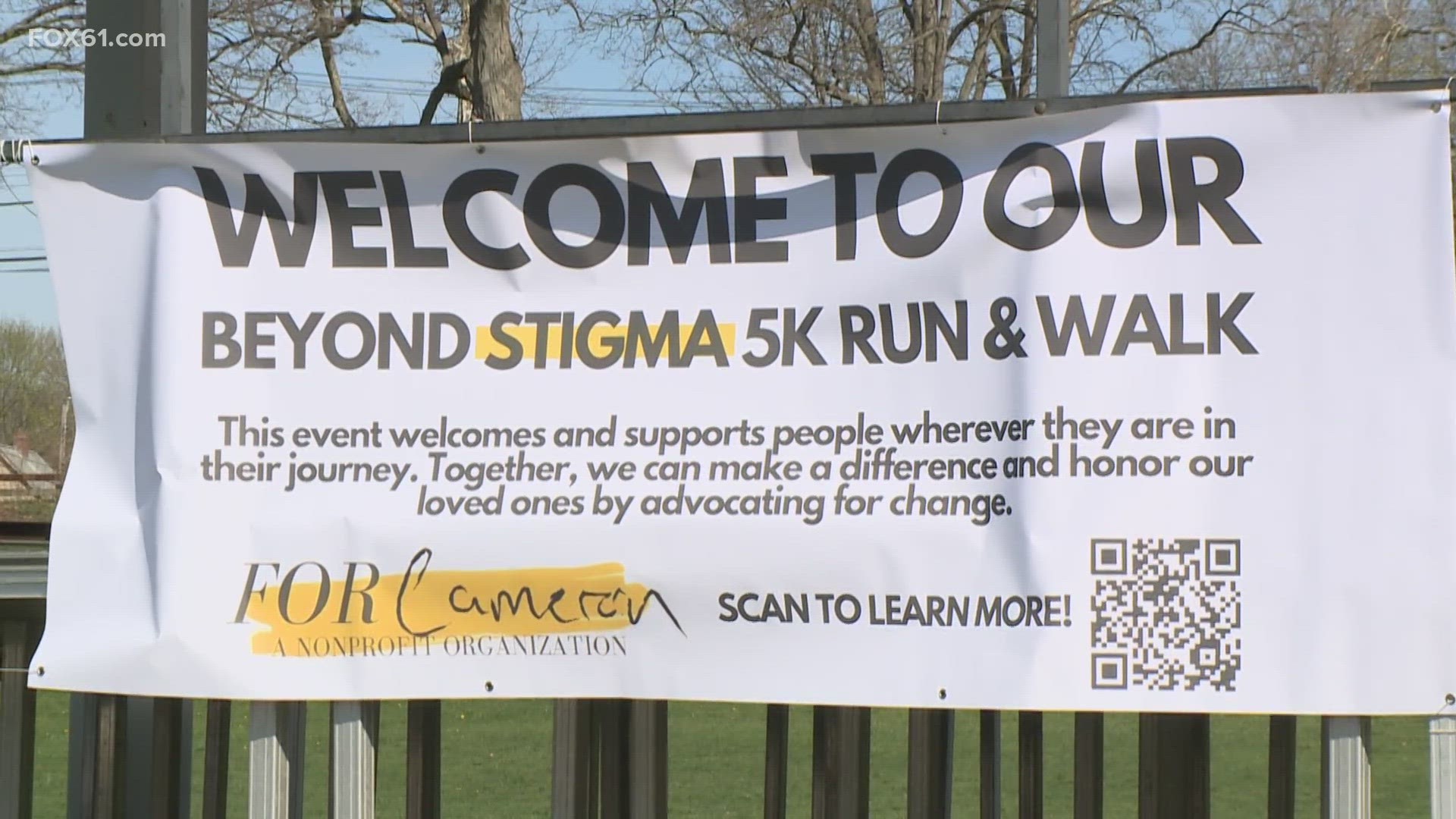MANCHESTER — The Center for Disease Control is reporting that heroin related overdose deaths have more than tripled nationwide in the last six years.
Sarah Howroyd, of Manchester, told FOX 61 she is now publicly sharing her story of opioid addiction in hopes that it will help others find their way to recovery.
Howroyd described her childhood as idealistic and one that was full of happy memories. She often visits her parents at her childhood home in Manchester, the same home she grew up in alongside her brother and sister.
“I just had so much love, and so much support, and so much encouragement- -this was never supposed to happen to me,” Howroyd said.
She described her addiction to opioid drugs a surprise, even to her.
“If you had told me in high school that I would end up using heroin or other opioids, I would fall off my seat in shock,” she said.
She said her struggle with opioids began in November 2005 after she was in a bad car accident. She suffered from whip-lash and a back injury. Her doctor started her on the pain medication Oxycontin, a drug classified as an opioid.
“You think 'oh it’s from a pharmacy its safe. It's FDA approved. My doctor’s recommending this,'” Howroyd said about that time, and why she said she continued to get refills.
Over time, she developed a dependency on the drug.
“Your brain chemistry changes and it changes within 30 days, so my body was dependent on it,” Howroyd said.
She said that when the refills ran out, she turned to buying pills on the black market.
“It very quickly becomes your body needing to be dependent on opioids just to feel normal, just to get through your day. You can go to work, you can’t go to school, you’re physically flu-like symptoms until you get that opioid,” she said.
She said after years of needing the drug, a turning point came when she couldn’t get her hands on anymore pills. That’s when withdrawal symptoms kicked in.
“Your blood inside feels like it’s cold but your skin is hot and clammy. Imagine the worst flu-like symptoms you’ve even had, times one hundred. Your whole body aches,” Howroyd said.
She said she then turned to heroin as an act of desperation.
“And then once you cross that line it’s very hard to go back. It's almost like your brain is hijacked by this, it's like your brain is taken over,” Howroyd said.
Howroyd made several failed attempts to stop using, but eventually she had an epiphany.
“I realized that if I didn’t get well I was never going to be a mom,” Howroyd said.
This time, a combination of her private health insurance policy and financial and emotional support from her mother helped get her started on her road to recovery.
“Entering recovery is the scariest and hardest thing I’ve ever done in my life, but it’s very, very much possible,” Howroyd said.
She described it as a rocky start which included a trying six-month detox riddled with the darkest of thoughts.
“I was just sitting there thinking of ways of, 'How am I going to… how am I going to kill myself?'” Howroyd said.
For Howroyd, a combination of in-patient and out-patient programs, as well as a medication-assisted treatment plan involving the drug Buprenorphine, carried her through. She said the start of the medication-assisted treatment was life-changing for her.
She is now four years into recovery and emphasized that addiction to opioids is not a decision that someone makes.
“It’s not to do with character. This can happen to anyone, from any walk of life, any socioeconomic status, any color, purple, green, blue, it doesn’t matter, it can happen to anyone,” Howroyd said.
She also said she believes it is a choice to get well again.
“My life today is one million times better than it ever was using,” Howroyd said.
She is currently working towards a master’s degree in social work and plays an active role in the Connecticut Opioid Overdose Prevention Work Group, a statewide initiative.
Howroyd attributes a large part of her recovery to her outreach work and community service, and is also a co-founder of an upcoming campaign with Manchester Police that is intended to encourage people addicted to heroin to ask for help without fear of facing criminal charges.
There are ways to get help for heroin addiction:
To find a treatment assessment center near you, call 1-800-563-4086.



